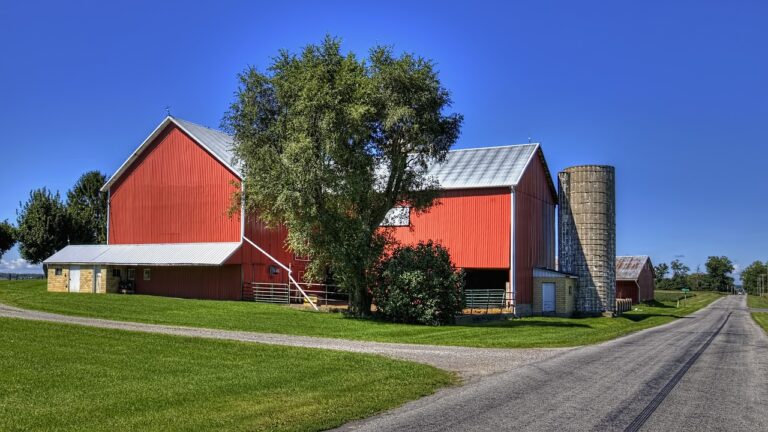The Future of Demolition Workforce: Diamondexch9, Sky99exch com login, Reddy club
diamondexch9, sky99exch com login, reddy club: The Future of Demolition Workforce
Demolition work is an essential aspect of construction and development projects. Demolition workers play a crucial role in clearing out old structures to make way for new buildings and infrastructure. As technology advances and trends in the construction industry evolve, the future of the demolition workforce is also set to undergo significant changes.
In this blog post, we will explore the trends that are shaping the future of the demolition workforce and how workers in this field can adapt to these changes to stay relevant and competitive in the industry.
The Rise of Automation and Robotics in Demolition
One of the most significant trends that are shaping the future of the demolition workforce is the rise of automation and robotics in demolition processes. Advances in technology have led to the development of robotic demolition equipment that can perform tasks that were once done manually by demolition workers.
Robotic demolition equipment can be used to demolish structures more efficiently and safely than traditional methods. These robots can be equipped with advanced sensors and cameras that allow them to navigate complex environments and perform intricate tasks with precision.
As automation and robotics become more prevalent in the demolition industry, workers will need to adapt to working alongside these machines. Demolition workers will need to gain new skills and knowledge to operate and maintain robotic equipment, as well as learn how to program and troubleshoot these machines.
The Importance of Safety in Demolition Work
Safety has always been a top priority in the demolition industry, and this will continue to be the case in the future. As technology advances, new safety measures and protocols will be developed to ensure the well-being of demolition workers and the public.
Demolition workers will need to undergo comprehensive training programs to stay up-to-date on the latest safety standards and procedures. They will also need to be vigilant and proactive in identifying potential safety hazards on demolition sites and taking appropriate measures to mitigate risks.
The Future of Sustainable Demolition Practices
Sustainability is a growing trend in the construction industry, and this trend is also shaping the future of the demolition workforce. Demolition workers will need to adopt sustainable practices to minimize the environmental impact of their work and reduce waste generation.
One way that demolition workers can promote sustainability is by implementing deconstruction techniques that salvage and recycle materials from demolished structures. By salvaging materials such as wood, metal, and concrete, demolition workers can reduce the amount of waste that ends up in landfills and contribute to a more circular economy.
Demolition workers can also use environmentally friendly demolition methods, such as using non-toxic demolition agents and dust suppression techniques, to reduce the environmental impact of their work. By prioritizing sustainability, demolition workers can help shape a more sustainable future for the construction industry as a whole.
The Impact of Demographic Changes on the Demolition Workforce
Like many other industries, the demolition workforce is also being affected by demographic changes, such as an aging workforce and a shortage of skilled labor. As experienced workers retire and younger generations enter the workforce, the demolition industry will need to adapt to these changes to ensure a steady supply of qualified workers.
Demolition companies can address these demographic challenges by investing in training and development programs for new and existing workers. By providing opportunities for career advancement and skills development, demolition companies can attract and retain top talent in the industry.
Moreover, the demolition industry can also benefit from embracing diversity and inclusivity in the workforce. By promoting a diverse and inclusive work environment, demolition companies can attract workers from a wide range of backgrounds and experiences, bringing fresh perspectives and ideas to the industry.
The Future of Demolition Workforce: Embracing Innovation and Adaptation
In conclusion, the future of the demolition workforce is being shaped by a variety of trends, including automation and robotics, safety protocols, sustainability practices, and demographic changes. To thrive in this evolving industry, demolition workers will need to embrace innovation and adaptation to stay competitive and relevant in the field.
By staying up-to-date on the latest technologies and best practices in the demolition industry, workers can position themselves for success in the future. Training programs, certifications, and professional development opportunities can help workers acquire the skills and knowledge they need to excel in their roles and advance their careers.
As the construction industry continues to evolve, the demolition workforce must also evolve to meet the changing demands of the market. By embracing innovation, sustainability, and diversity, demolition workers can help shape a brighter future for the industry and contribute to the growth and development of the built environment.
FAQs:
1. What are some of the new technologies that are shaping the future of the demolition workforce?
2. How can demolition workers promote sustainability in their work?
3. What are some of the safety measures that demolition workers need to be aware of?
4. How can demolition companies address the challenges posed by demographic changes in the workforce?
5. What are some of the skills and knowledge that demolition workers need to stay competitive in the industry?







